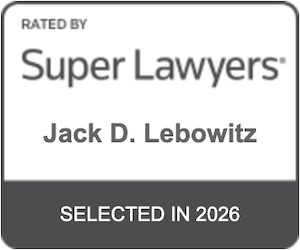Passenger Safety as a Function of Vehicle Size
With the hectic nature of this modern world, it is a fair bet that the average motorist hardly ever dwells on the potentially injurious or fatal aspects of a car accident. Except when driving past an auto or commercial trucking wreck on the beltway or rural highway, the thought of being involved, ourselves, in a serious and possibly life-altering traffic collision is one of the last things on any driver’s mind.
That said, the possibility of being involved in a roadway accident at some time in anyone’s life is, statistically, quite high. In fact, almost every person reading this sentence will at some time in his or her life be caught up in some kind of a car, truck or motorcycle crash. Whether the accident in question is a serious one has much to do with the circumstance surrounding the incident, which may change over time for better or for worse. As Maryland personal injury lawyers, the legal experts at Lebowitz & Mzhen Personal Injury Lawyers, know that some victims will need the expertise of an auto accident attorney.
Of the factors that determine, sometimes randomly, whether or not a traffic accident will leave someone seriously injured or dead is the size and weight of the motor vehicle in which they are traveling. Secondarily, the size and weight of the other vehicle — assuming a two-car or multi-vehicle crash — will also have a major influence on the outcome of most any severe roadway collision. On the whole, the larger and heavier the vehicle, the better off the occupants may be, if and when a traffic wreck occurs.
This is why many new-car buyers find one question so prevalent when shopping for a car, truck, sport utility vehicle or minivan: “How safe is that new car?” This can be a very troubling question for many consumers when picking out a new or used vehicle to replace an existing one. With more than 30,000 fatal traffic accidents taking place on average every year in this country, the odds, however small, are still significant in the minds of many people.
Although surviving a bad auto or commercial trucking accident may not be foremost in every motorist’s mind, it is a fair bet that parents of young children consider the safety provided by their family vehicle to be paramount when choosing a new car. Even if a driver is not that concerned about the slim odds of being killed in a car accident, he or she may feel the need to look at the safety benefits of any particular vehicle as they apply to those future auto insurance premiums — it goes without saying that the safer a vehicle is in the eyes of insurers companies, the cheaper one’s car insurance policy will likely be.
When it comes to rating the safety of new cars these days, the Insurance Institute for Highway Safety (IIHS) has established several collision categories on which it bases its crash performance tests. The four rating categories and their respective test procedures are listed below.
- Frontal offset crash test — A vehicle traveling at 40mph hits the barrier head-on
- Side-impact crash test — A 3,330-pound mass, approximately the size of an SUV, strikes the driver’s side at 31mph
- Rollover test — A metal plate strikes one corner of a vehicle to determine how much force is necessary to cause the vehicle to roll over
- Rear-impact test — The vehicle is struck from behind to determine if the passenger seats and safety belts will protect the occupants from whiplash
Naturally, in all of this testing, it often becomes apparent that a percentage of smaller vehicles are deemed less safe than those larger and more massive cars and trucks. For drivers and passengers who spend a good deal of their day commuting in heavy traffic, occupant safety as a function of vehicle size is likely to be an aspect of any automobile purchase that will usually receive some serious attention.
As motorists ourselves, the legal staff at Lebowitz & Mzhen understands the desire of parents, grandparents, and other safety-conscious motorists to own or drive a vehicle that is as safe as possible, while meeting the various other criteria that consumers tend to look for in every motor vehicle. Whether one commutes for an hour or more, slogs through troublesome traffic backups on the beltway, or only ventures out several blocks to pick up the kids, staying safe will likely be a large factor in the purchase decision for almost any driver.
There is no argument, in general, that when it comes to small vehicles and compact cars, many safety advocates believe that lightweight vehicles have an inherent disadvantage in the area of crashworthiness. Just the physical dimensions of a mini car or small compact vehicle tells the casual observer that there is less margin for safety in a high-speed impact. In fact, smaller vehicles can have a problem when it comes to so-called “intruding structure,” where during an impact the space ahead and around the driver can be seriously compromised.
While many manufacturers endeavor to make their smaller car models as safe as possible, the physical limits of designing a safer compact car are hampered simply due to the smaller size. This is why safety features such as airbags and seatbelts are all the more important for the occupants of these diminutive vehicles. As personal injury lawyers, the professionals at Lebowitz & Mzhen know that any weakness in a car’s structure can spell tragedy in a serious road accident, especially one that involves a larger SUV or commercial truck and a small car.
In the battle between large passenger cars and smaller ones, the smaller vehicles are no match in crashes between disparate-sized vehicles. This has been illustrated in studies such as those produced by the IIHS, which shows that compact and mini cars are no match for larger, more massive vehicles. Studies that test the safety of small versus large vehicles have one common denominator: physics.
Regardless of the look, feel and style of a small car, the laws of physics will always bring a potential buyer back to reality. As most any engineer knows, the impact forces that act on occupants during a traffic accident hinge on two important factors, that of size and of weight, or mass. When a vehicle hits a solid, immovable object, the outcome has a great deal to do with the physical size (or depth) of the car’s front end.
If a car has an especially long nose, it will be able to absorb more energy as it hits another object. In other words, shorter (read: smaller) vehicles have less of a collapsible structure to take up much of the crash energy. Any energy that the vehicle itself cannot absorb in the form of a front crumple zone will more than likely be transferred to the occupants before the car’s forward motion ceases.
Taking the two-vehicle crash test into consideration, the same laws of physics still apply, but the solid object is now the larger of the two vehicles. When two cars traveling at equal speeds hit each other head-on, the outcome will be dependent on the relative mass of each vehicle. The heavier, or more massive, car will tend to push the lighter vehicle backward at the moment of impact. This means the deceleration of the heavier vehicle will necessarily be much less than that of the lighter car.
As auto injury attorneys, Lebowitz & Mzhen has experience with accident cases that involve traffic accidents in which a lighter vehicle is hit by a heavier one. It is important to realize that if the lighter vehicle is half the mass of the other car, the crash forces experienced by the occupants of the smaller vehicle will usually be twice as great. As the physics of automobile and commercial truck accidents shows us, passengers in large vehicles are in a much better position to survive a crash than those in smaller cars.
Needless to say, the victims of any roadway wreck may need the specialized skills of a personal injury lawyer experienced in litigating automobile, trucking and motorcycle crashes. At Lebowitz & Mzhen Personal Injury Lawyers, we are well equipped to offer help to victims of urban auto accidents, highway truck collisions and beltway traffic wrecks. Our job is to assist victims and their families recover the cost of emergency treatment, thoracic and abdominal surgery, physical therapy, and long-term nursing care. We can also help recovering damages resulting from lost wages and other monetary consequences of a serious highway collision. Please contact us to arrange for a free, no-obligation consultation with a personal injury lawyer. Our toll-free number is at (800) 654-1949, or you can email either Jack Lebowitz or Vadim Mzhen to set up a meeting to discuss your injury-related traffic accident.







